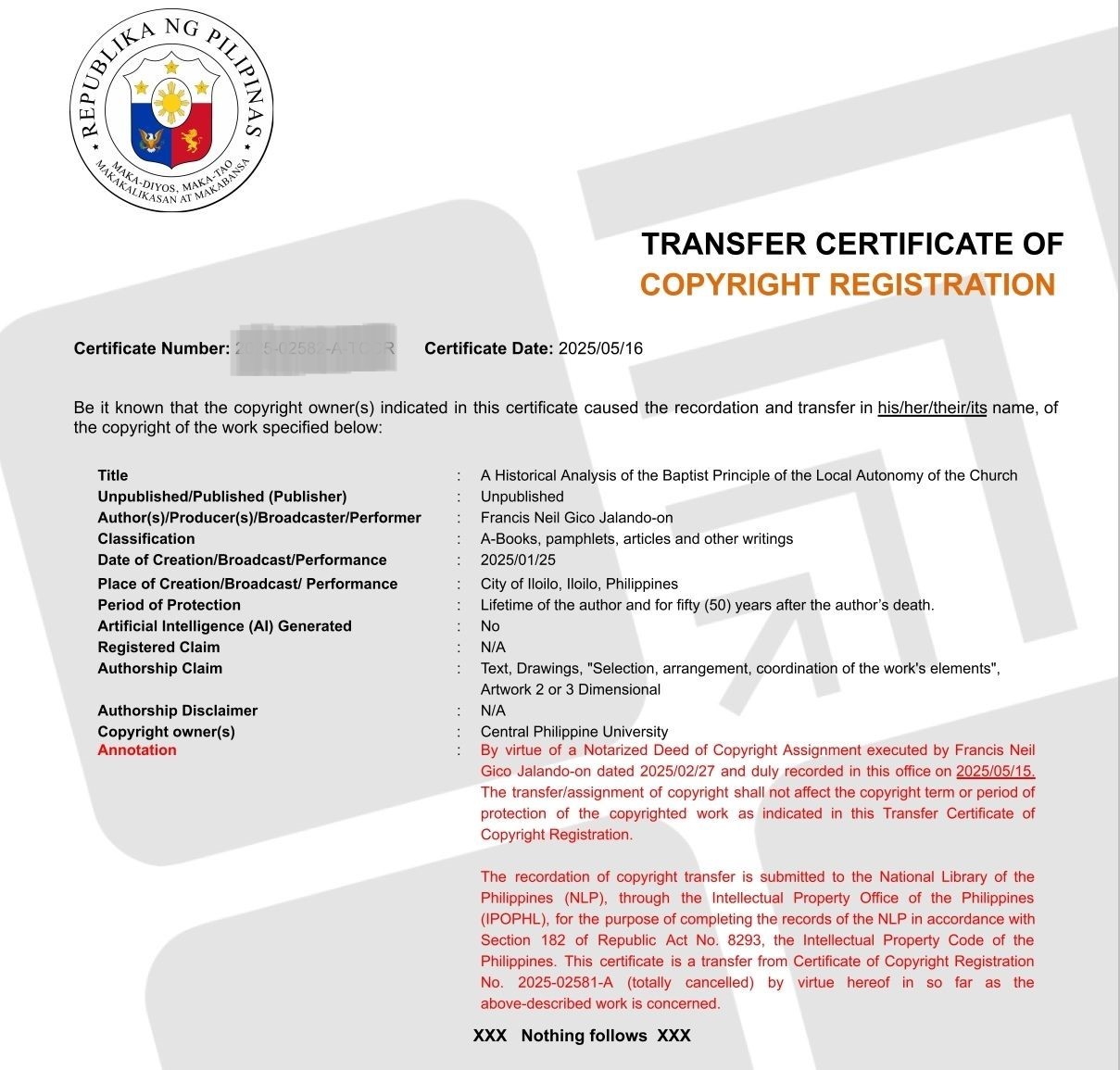By Karren Jay G. Asgar

Rev. Dr. Francis Neil G. Jalando-on secures copyright for his latest book, “A Historical Analysis of the Baptist Principle of the Local Autonomy of the Church,” supported by University Research Center’s ongoing efforts to protect and promote intellectual property within the Centralian community.
The University Research Center of Central Philippine University continues to support the Centralian community in securing copyright protection for their original works. This initiative aims to safeguard intellectual property and encourage innovation within the university community.
As the University currently has no designated Innovation and Technology Support Office (ITSO) officer, this initiative is being carried out under the guidance of URC Director, Dr. Evelyn Grace D. Ayson, the office assists applicants throughout the copyright registration process with the Intellectual Property Office of the Philippines (IPOPHL). The assistance covers various types of creative works, including but not limited to literary pieces, research outputs, visual arts, and educational materials.
Ms. Ligaya Villarias-Caniel, Secretary of the University Research Center, is in charge of handling the applications. She shared that the initiative has been especially helpful to faculty and staff. “We assist them in compiling and preparing the necessary documents for copyright registration,” she explained. She also noted that the required documents are listed on the IPOPHL website and that the entire process is conducted online, making it more accessible to everyone.
As of June 2024, the URC has successfully facilitated the copyrighting of 24 original works and the registration of 2 trademarks, which reflects the university’s growing culture of intellectual property protection.
The URC encourages the entire Centralian community—students, faculty, and staff—to take full advantage of this valuable service and protect their intellectual property through proper copyright registration, patent applications, and other relevant processes.
In the interview, Caniel shared several recommendations to further strengthen intellectual property (IP) protection at CPU. She emphasized the need to intensify IP awareness campaigns by conducting regular in-house seminars, orientations, and workshops to educate faculty members on the importance of safeguarding their creations. She also highlighted the value of strengthening engagement between the faculty and the Intellectual Property and Technology Support Office (ITSO), encouraging collaboration from the initial idea stage through to filing and commercialization.
To motivate more innovation, she proposed providing institutional incentives such as grants, awards, or recognition to faculty members actively involved in IP generation and commercialization. Caniel further recommended integrating basic IP education into undergraduate and graduate programs, especially within science, engineering, and business courses. Lastly, she called for creating a supportive environment by streamlining institutional IP policies, simplifying patent filing procedures, and ensuring fair revenue-sharing agreements when inventions are commercialized.
With these initiatives and recommendations, CPU-URC continues to foster a vibrant culture of creativity, research, and innovation at Central Philippine University.
